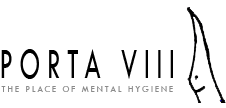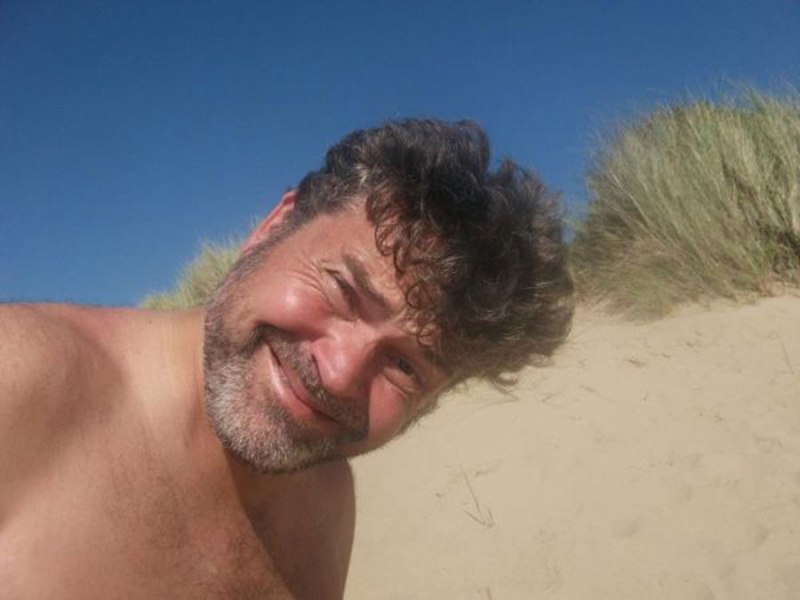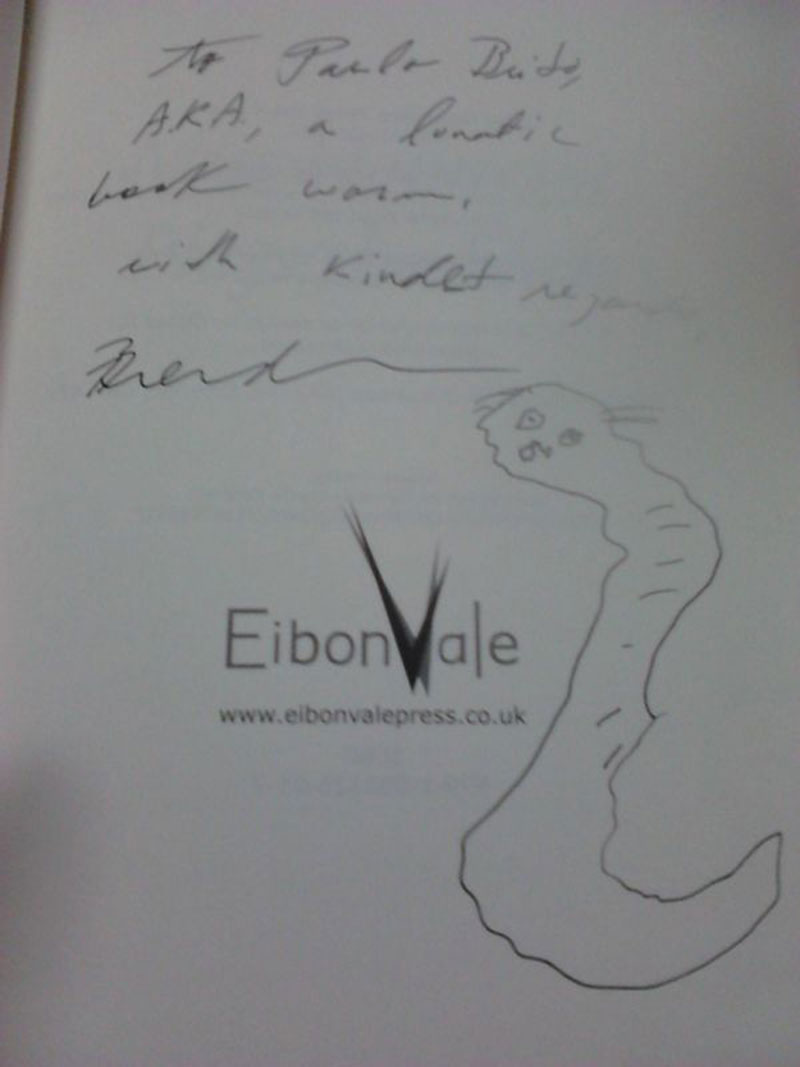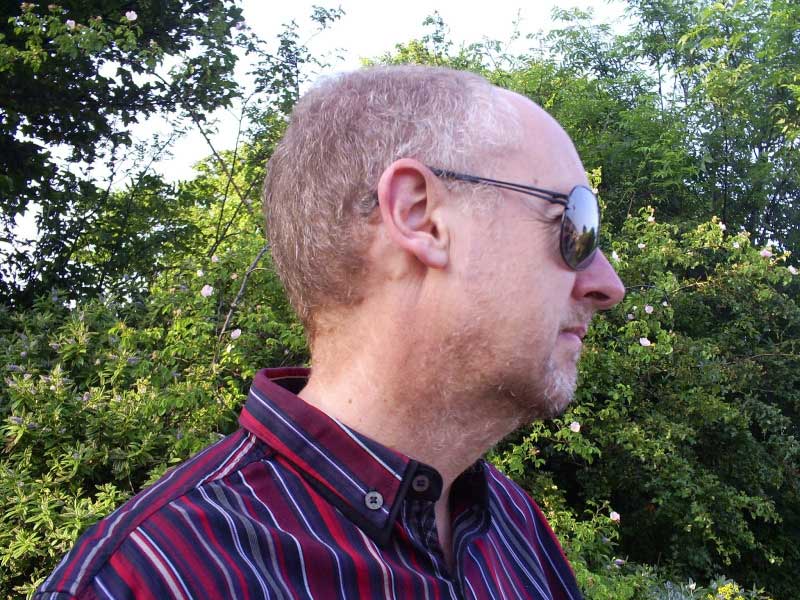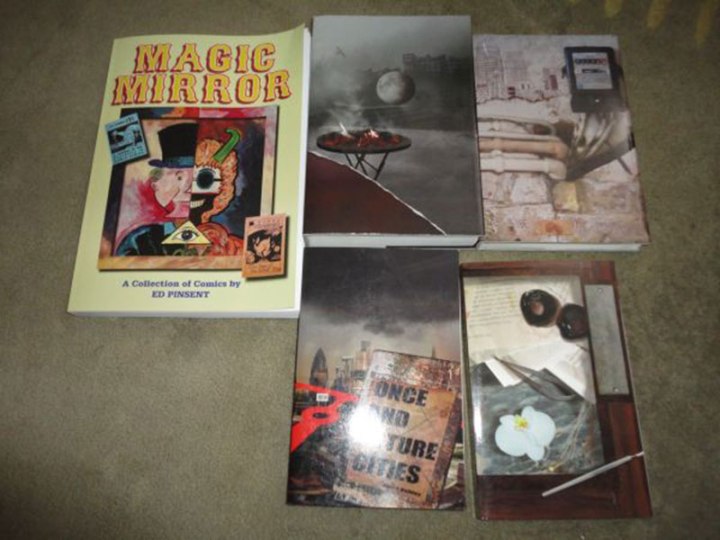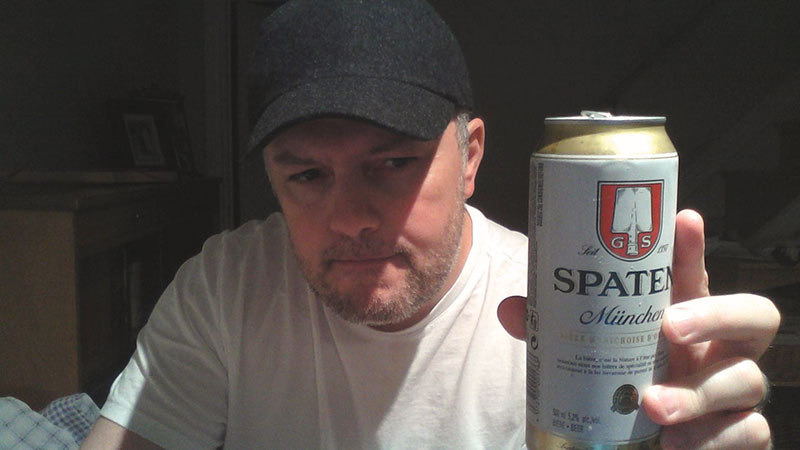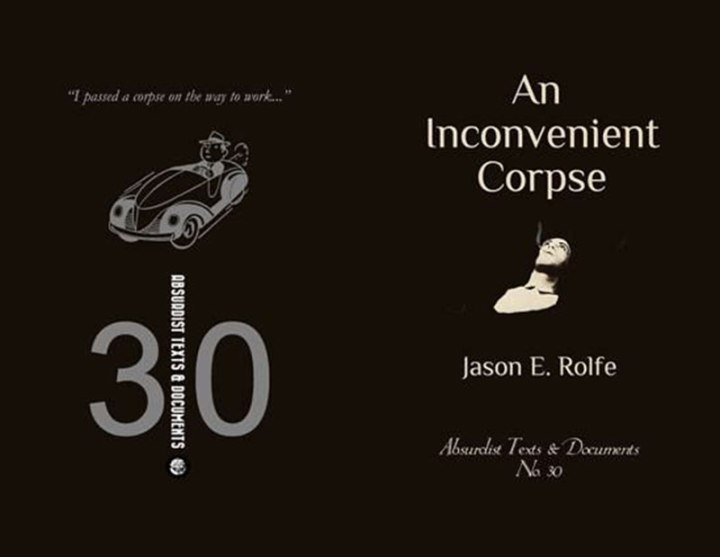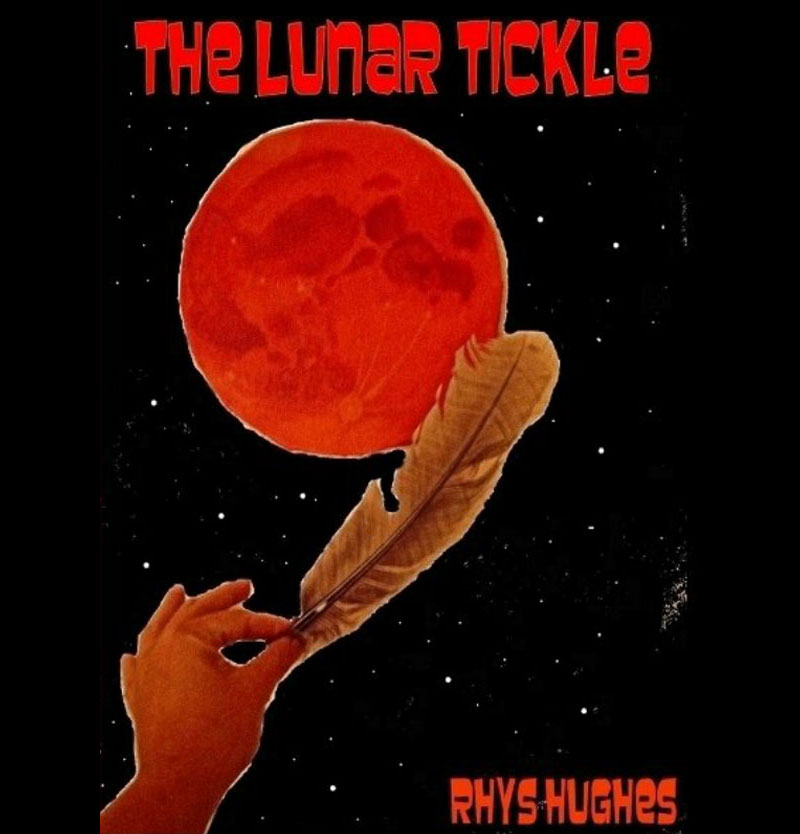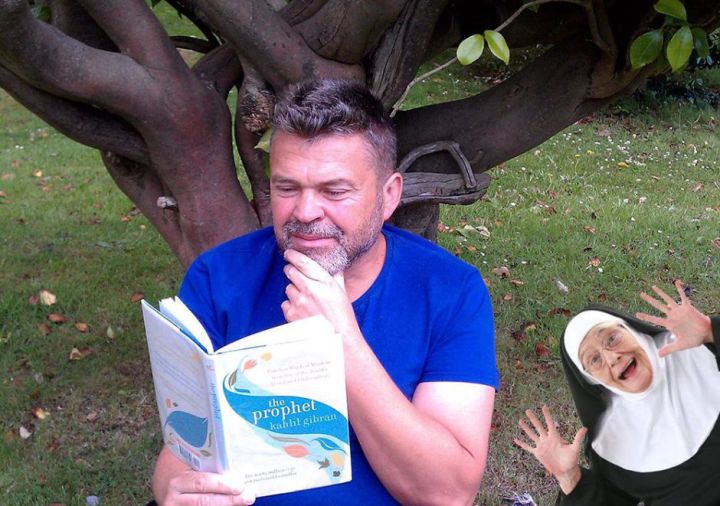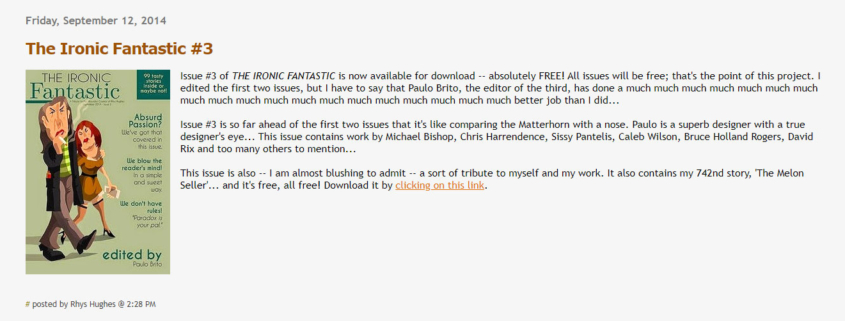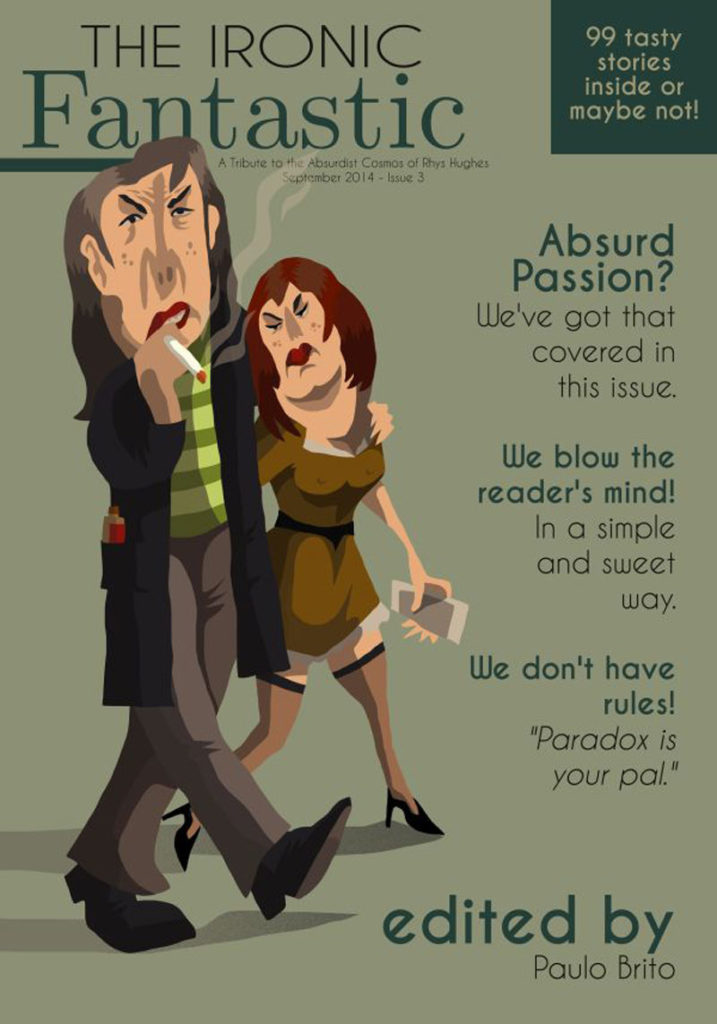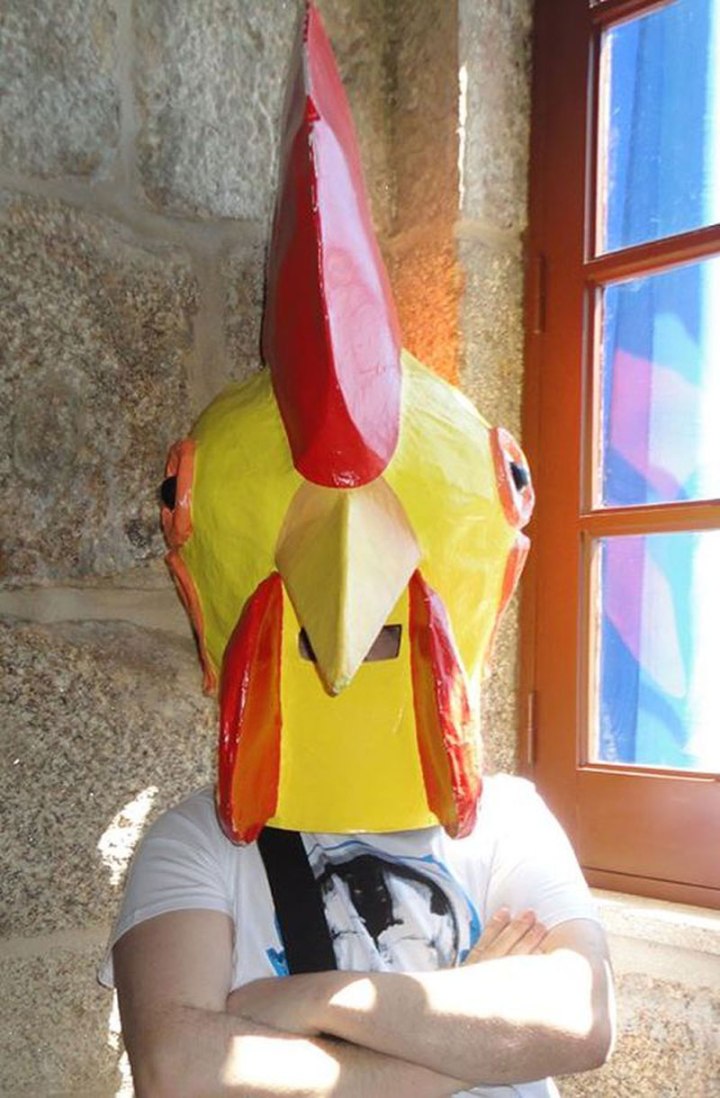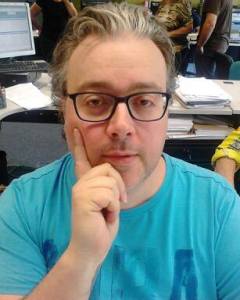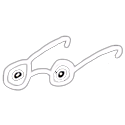platinum interview to rhys hughes
And, since, any powerful mind constantly needs a steady flow of knowledge to be free from the shackles of lethargy his stories provide everything: action, adventure, mystery, suspense, twists, turns, science fiction, eroticism, dinosaurs. There is no program on the Discovery channel that provides so much information, misinformation, philosophy, metaphysics – ufa!
I am certain that I do have a specific style, but I would find it difficult to define what it is absolutely. I can only say that it’s a style that has been influenced by many factors, including my capabilities and limitations, my experiences and the authors I most enjoy. This is true of nearly every author and is hardly a profound observation.
Having said this, I am scarcely aware of my capabilities and limitations; most of my experiences are those I have no intention of writing about; and there are writers I enjoy who I never attempt to emulate in any way. I enjoy rhythmic and poetic prose, but it must be strong too, muscular baroque. I love wordplay but not at the expense of narrative or ideas. I love symmetry and patterns, so the way prose looks on the page is also important to me.
2. What books have most influenced your life?When it comes to fiction, the answer is that many of the important books in my life were those I encountered at a formative age. So The Invisible Man by H.G. Wells and Treasure Island by Robert Louis Stevenson were responsible for getting me interested in literature in the first place; the complete tales of Edgar Allan Poe made me want to be a writer; War and Peace by Leo Tolstoy helped me realise that ‘deep’ novels could be enjoyable rather than difficult; Voltaire’s Candide introduced me to satire and changed my writing life. Then there was Kafka, Saki, Chekhov and the inimitable Borges.
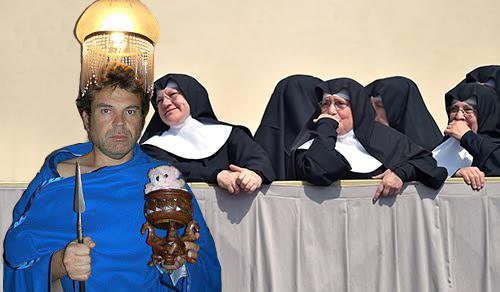
rhys hughes
Although these days I tend to downplay the importance of science fiction and fantasy works as influences, in fairness I must mention Frank Herbert’s Dune and Ursula K. Le Guin’s The Left Hand of Darkness, and to a lesser extent Robert Silverberg’s Lord Valentine’s Castle, as being important to me. I spent the best part of a year reading Ray Bradbury with unreserved admiration. There was also Brian Aldiss. And Michael Moorcock, especially his Dancers at the End of Time sequence. Jack Vance was perhaps even more of an influence, especially The Eyes of the Overworld, which gave me a taste for unrelenting symmetrical irony and comedic formality in dialogue.
A little later, Thomas Pynchon, John Barth and Vladimir Nabokov showed me that fiction could burst with ideas, style and events without the bursting damaging the vision or flow of a story; then Donald Barthelme, Boris Vian, Flann O’Brien and Milorad Pavi? taught me that whimsy can be rigorous and that the intellect doesn’t have to be a spoilsport.
I will add B.S. Johnson’s Christie Malry’s Own Double Entry and Felipe Alfau’s Locos: a Comedy of Gestures. Brion Gysin’s The Process is the supreme example of a novel that is unique and unexpected but which connects with some vital part of my soul, as if I had always been waiting to read it. At the moment I am enthusiastic for the work of S?awomir Mro?ek and I suspect that his short story collection The Elephant will also become one of the most important books in my life. And how can I forget two masterpieces by Italo Calvino, The Complete Cosmicomics and Our Ancestors? But if I had to specify only one book, then I might select Stanislaw Lem’s The Cyberiad, which never fails to amaze and delight me.
3. If you had to choose, which writer would you consider a mentor?Italo Calvino. No doubt about it. He has been my favourite author for more than thirty years, although when I first discovered his work I wasn’t so enthusiastic about it. That book was The Castle of Crossed Destinies and although I was vastly impressed by its form, by the ingenious scheme set out for the telling of numerous individual stories, the actual stories seemed to my mind to fail to live up to the promise of the framework that contained them. Ten years later I read the book again and enjoyed it much more; and soon I will embark on a third reading. It’s very rare that I read books more than twice. Since then, I have read as much of Calvino’s work as I can get my hands on. I loved Invisible Cities, Adam One Afternoon, Marcovaldo, Mr Palomar, Numbers in the Dark, all his books in fact. It’s a shame there is still a lot of his work that hasn’t yet been translated from Italian into English. I hope one day that it will all be available.
4. What are your current projects?I always work on several projects at the same time. I am writing commissioned short stories for various themed anthologies. I am also planning to resume work on two projects that have been on hold for a long time, a novella called 500 Eyes and a big novel called The Clown of the New Eternities. It is also time to start thinking about writing a new ‘Stringent Strange’ tale, either a novella or novel. But the project I am most enthusiastic about is something completely new, a collection of linked stories called Down Cerberus, which takes as its main conceit the idea of a set of interviews with the mythical triple-headed dog, who can relate stories about all the famous people he has encountered as souls on their way to Hades. They have to pass him on the journey from life to death and are able to stop and chat and tell him anecdotes about their lives that are unknown to historians. This idea was partly inspired and influenced by Karel Čapek’s Apocryphal Tales, a book I’m currently reading and which concerns the untold tales of various characters from history and mythology.
5. How much research do you do?The answer to this question depends entirely on the story I happen to be writing. Some stories require a lot of research; others don’t. Many of my stories might be based on the examination and development of an abstract idea, so factual research is less important than an ability to be logical and imaginative, and to be imaginative enough to twist that logic if necessary. Other stories might be based on personal experience and in such cases it can be said that the research has already been part of the living process. But research is certainly essential to the competent construction of stories that have some basis in history or in the actualities of other people or things. I do a lot of research when I have to. It’s a pleasure, not a chore, because I enjoy reading encyclopaedias and textbooks anyway, and I always have, and I also enjoy making my own investigations into facts, figures and perspectives.
6. Do you write full-time or part-time?I write full time, but I don’t think this situation is sustainable indefinitely. When I returned to Britain in 2008 after living in Spain, I attempted to find a ‘normal’ job, but I was unsuccessful because of my erratic work history. Most employers don’t like their potential employees going off travelling periodically, and so I found it impossible to secure a job. As my writing was already bringing in a small income, I decided to take the chance of writing full time and declaring myself self-employed. I didn’t expect to succeed at this for more than one year, but so far it has worked out for seven, only just. I have a frugal lifestyle and that makes it possible to survive on an income derived solely from writing peculiar and absurdist works that are not generally popular.
Having said that, I do occasionally diversify in order to supplement my income and this is something I can see happening to a greater and greater extent in the future. There are other options that I am considering, including running off somewhere with someone. Let’s see what happens! I do know, however, that my current lifestyle probably can’t continue for much longer. The cost of living is higher now than I ever remember it, and although my income from writing is increasing every year, it’s not keeping pace with costs. But I can’t complain. I am a lot more successful than I ever imagined I would be. Success is relative and when I started out, all I wanted was to have one book published. I have exceeded that aspiration by a factor of more than thirty.
7. Where do your ideas come from?This is the supposedly ‘dreaded’ question that every writer hates to be asked, but in fact it’s a perfectly valid question and one that’s easy to answer. Ideas come more smoothly and simply with practice. This means actively attempting to invent and develop ideas in one’s head. It’s the same as learning to dance or ride bicycles or climb mountains. It requires belief, persistence, desire and practice. So when you are out walking, think about story scenarios in your mind. Think about them wherever you are. The more you do this, the more likely it is that good and original ideas will come to you. It might take years, many years in fact, before the ideas start jumping into your mind automatically, but it will eventually happen. It just takes the stamina to keep going, that’s all. Then ideas will come to you without being asked first; and you may actually regret the fact, because they won’t leave you alone. They will trouble your waking and sleeping hours until you express them as stories on the page. Then you are a real writer, akin to a doomed soul, and the question about where story ideas come from will never annoy you again.
8. How can readers discover more about you and you work?I have a blog and there is lots of information about me there. Or simply type my name into Google and do a search. I have many stories online that can be read for free. I plan to eventually put up exactly 100 stories on my ‘Platinum Ass’ blogsite. This site was named in tribute to Apuleius’ Golden Ass but very few people have understood the connection. In the meantime, my main blog, ‘The Spoons that are my Ears’, can be found at the following address:
http://rhysaurus.blogspot.com
